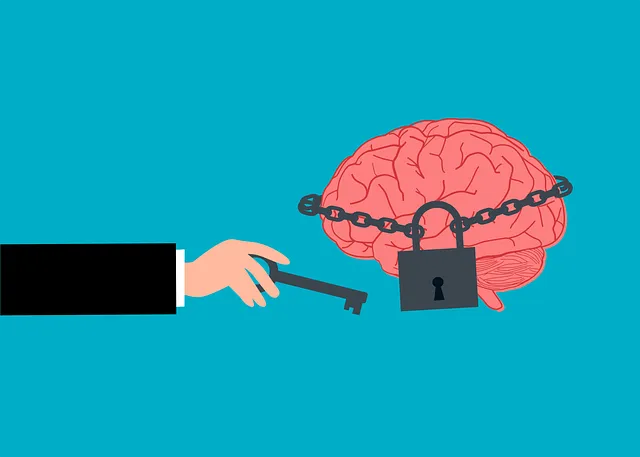The Lakewood Kaiser Permanente mental health center employs the RFM framework—Resilience, Flexibility, and Mindfulness—to promote mental wellness. This approach uses techniques like mindfulness practices, cognitive-behavioral therapy, and stress management to help individuals adapt, manage emotions, and maintain a positive outlook. By integrating these strategies into daily life, both patients and healthcare providers can build resilience, reduce burnout, and enhance overall well-being, as demonstrated by the center's successful model.
At Lakewood Kaiser Permanente Mental Health Center, Resilient Factors Measurement (RFM) is a game-changer. This approach helps individuals understand their resilience and build upon it, fostering personal growth in the face of challenges. Our comprehensive guide explores various resilience-building exercises inspired by LKP’s successful integration of RFM into daily life. Discover practical tips on how to enhance your mental well-being by adopting these strategies, originally developed and refined at Lakewood Kaiser Permanente.
- Understanding RFM and Its Role at Lakewood Kaiser Permanente Mental Health Center
- Resilience-Building Exercises: A Comprehensive Guide for Personal Growth
- Practical Tips to Integrate RFM into Daily Life, Inspired by LKP's Approach
Understanding RFM and Its Role at Lakewood Kaiser Permanente Mental Health Center

At Lakewood Kaiser Permanente Mental Health Center, Understanding RFM (Resilience, Flexibility, and Mastery) is paramount in fostering mental wellness and mood management among patients. This approach recognizes that building resilience isn’t just about overcoming challenges but also adapting effectively to them. By promoting flexibility in thought and action, individuals learn to navigate life’s twists and turns with greater ease.
The center incorporates various exercises aimed at enhancing mastery over one’s emotions and behaviors. These include mindfulness practices, cognitive-behavioral techniques, and stress management strategies. Through these tools, patients gain a sense of control, enabling them to better cope with anxiety relief and overall mental health improvement. The RFM framework serves as a guiding star in the journey towards achieving and maintaining a state of equilibrium at Lakewood Kaiser Permanente Mental Health Center.
Resilience-Building Exercises: A Comprehensive Guide for Personal Growth

Resilience-building exercises are an essential component of personal growth and well-being, especially in today’s fast-paced world where stress and burnout prevention are paramount. At the Lakewood Kaiser Permanente mental health center, we understand the impact of resilience on overall mental health. Our comprehensive guide aims to empower individuals with strategies to navigate challenges and foster a sense of empowerment.
Through various techniques, such as mindfulness meditation, cognitive reframing, and social skills training, one can cultivate a resilient mindset. These exercises teach individuals to adapt to change, manage emotions effectively, and maintain a positive outlook even in difficult situations. By investing time in resilience building, folks at Lakewood Kaiser Permanente can transform their lives, becoming better equipped to handle life’s curveballs while enjoying enhanced mental fortitude and improved overall well-being.
Practical Tips to Integrate RFM into Daily Life, Inspired by LKP's Approach

Integrating RFM (Resilience, Flexibility, and Mindfulness) into daily life can be a game-changer for healthcare providers striving to combat burnout. Inspired by the approaches at the Lakewood Kaiser Permanente mental health center, here are some practical tips to enhance resilience:
1. Cultivate Compassion: Healthcare professionals often bear witness to suffering, which can take an emotional toll. Incorporating compassion cultivation practices into your routine encourages empathy and fosters a deeper connection with patients, reducing personal stress.
2. Develop Coping Skills: Effective coping strategies are essential for managing stress and challenging situations. Regularly engage in activities that promote self-care, such as mindfulness exercises, deep breathing techniques, or even short walks in nature, to recharge and refocus.
3. Practice Mindfulness: Being present in the moment can help detach from overwhelming emotions. Mindfulness meditation or simply taking a few mindful breaths throughout the day can enhance focus and reduce reactionary behaviors, leading to better decision-making.
4. Build Flexibility: Life’s unpredictable nature demands adaptability. Regularly challenge yourself with new experiences or learning opportunities to build mental agility. This flexibility will not only enrich personal life but also improve problem-solving skills in professional settings.
Resilience is a powerful tool for navigating life’s challenges, and the RFM (Recovery, Flexibility, and Mastery) model, as implemented at Lakewood Kaiser Permanente Mental Health Center, offers a structured approach to building this strength. By integrating resilience-building exercises into daily routines, individuals can enhance their ability to cope with stress, overcome adversity, and thrive. This article has provided a comprehensive guide to understanding RFM, exploring effective exercises, and offering practical tips inspired by the innovative practices at LKP Mental Health Center. Embrace these strategies to foster your own resilience and discover a new level of well-being.






